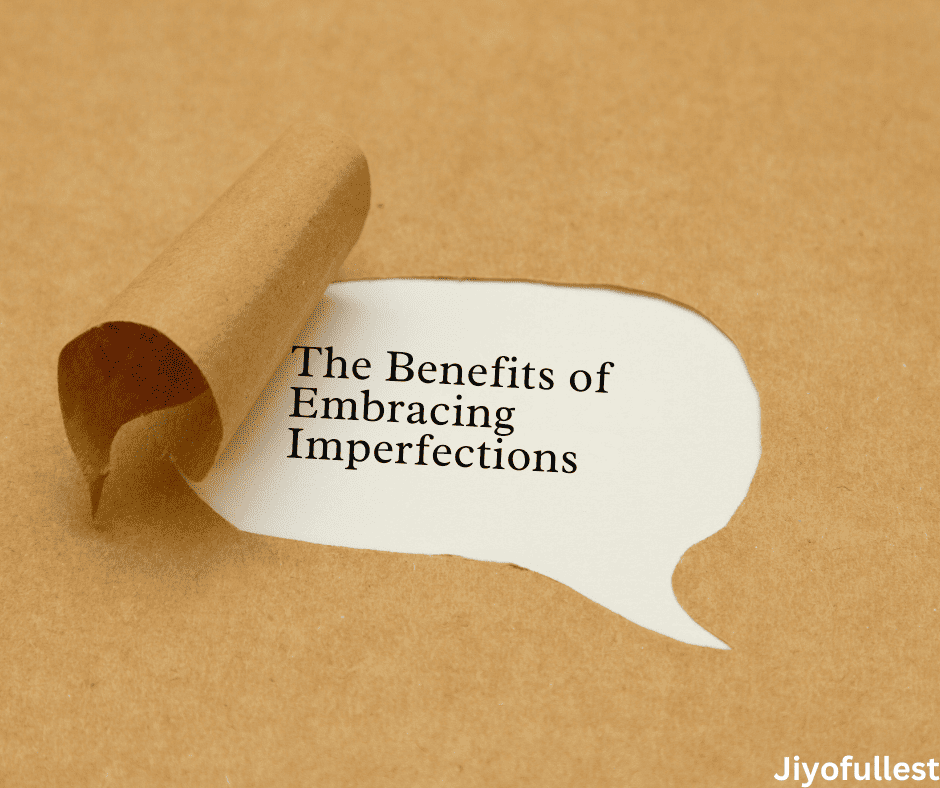When love feels intense, it can sometimes blur judgment and emotional clarity. This article explores how emotional attachment affects relationships, why people overlook warning signs, and how awareness supports healthier connection and healing.
In the intricate tapestry of relationships, love often feels like a magical force—an emotion that transcends logic, transforms lives, and stitches together two souls. The phrase “bliss love is blind” captures this beautifully. Love, in its purest form, sees beyond flaws and imperfections, focusing instead on the essence of the person we cherish. However, embracing your partner’s imperfections requires patience, understanding, and a shift in perspective.
In this guide, we’ll explore how to foster a relationship built on acceptance and love, highlighting practical tips for embracing imperfections and nurturing a deeper connection with your partner.
Table of Contents
ToggleWhat “Love Is Blind” Really Means
The phrase “love is blind” is often used to describe how strong emotional attachment can limit objective thinking in relationships. When emotions dominate perception, people may overlook incompatibility, unhealthy patterns, or unmet needs. This does not mean love is wrong, but it highlights how emotional intensity can temporarily reduce clarity.
In many relationships, this blind spot develops gradually. Small compromises are dismissed, boundaries soften, and discomfort is rationalized in the name of connection. Over time, this can lead to emotional confusion rather than genuine intimacy.
Understanding this dynamic is an important step toward healthier relationships and emotional well-being.
Why “Bliss Love is Blind” Matters in Relationships
The idea that “love is blind” often gets a bad reputation, but in reality, it reflects the beauty of unconditional acceptance. True love doesn’t mean ignoring flaws; it means recognizing them and choosing to love someone regardless. In a world obsessed with perfection, embracing imperfection fosters authenticity and builds trust.
When you accept your partner for who they truly are, you create a space for vulnerability, where both of you can thrive emotionally and spiritually. This is the essence of blissful love.
Common Signs Love May Be Clouding Your Judgment
Love does not need to be perfect, but emotional blindness often shows up through patterns rather than single moments. Common signs include:
Repeatedly excusing behavior that causes emotional discomfort
Avoiding honest conversations to maintain harmony
Feeling anxious about expressing needs or concerns
Confusing emotional intensity with emotional safety
Prioritizing the relationship over personal well-being
Recognizing these signs is not about blame. It is about restoring balance between emotion and self-respect.
Seven Common Signs You May Be in a Relationship Illusion
- Overlooking emotional discomfort repeatedly
You may find yourself minimizing or rationalizing behaviors that leave you feeling uneasy or emotionally drained. - Idealizing potential over present reality
The focus stays on who your partner could become rather than how the relationship actually feels right now. - Avoiding honest conversations to keep peace
Difficult topics are ignored or postponed out of fear that open communication might create conflict. - Feeling anxious about expressing your needs
You hesitate to voice concerns because you worry about upsetting your partner or disrupting the relationship. - Confusing emotional intensity with emotional safety
Strong feelings or dramatic highs are mistaken for stability, even when consistency or trust is missing. - Prioritizing the relationship over personal wellbeing
Personal boundaries, goals, or emotional health are repeatedly sacrificed to preserve the connection. - Holding onto hope despite repeated unresolved patterns
Recurring issues continue without meaningful change, yet hope remains the main reason for staying.
Practical Ways to Embrace Your Partner’s Imperfections
1. Shift Your Perspective
Imperfections aren’t shortcomings; they’re part of what makes someone unique. Instead of focusing on what you wish your partner would change, appreciate their individuality. For example, their forgetfulness may come from being overly focused on work, a sign of their dedication.
2. Focus on the Positives
Every person has strengths and weaknesses. Make a conscious effort to celebrate your partner’s strengths rather than dwelling on their flaws. Gratitude can shift your mindset and deepen your appreciation for them.
3. Communicate Openly
Discussing imperfections doesn’t have to be negative. Approach conversations with kindness and curiosity rather than criticism. Understanding the “why” behind certain behaviors can help you empathize and connect on a deeper level.
4. Practice Patience
No one changes overnight, and in some cases, they might not change at all. Recognize that love involves patience. Give your partner the grace to grow at their own pace.
5. Reflect on Your Own Imperfections
A relationship is a two-way street. While you’re embracing your partner’s flaws, it’s essential to acknowledge your own. This fosters mutual understanding and a sense of equality.
6. Set Realistic Expectations
Fairy tales often paint a picture of perfect love, but real relationships involve ups and downs. Accepting your partner’s imperfections means letting go of unrealistic ideals.
7. Use Humor
Laughter can transform how you perceive imperfections. Instead of letting minor annoyances frustrate you, find humor in them. A light-hearted approach can ease tension and build camaraderie.

The Benefits of Embracing Imperfections
Choosing to love your partner, flaws and all, has profound benefits:
- Stronger Emotional Bonds: Acceptance deepens your connection, fostering intimacy and trust.
- Greater Relationship Stability: When both partners feel valued, the relationship becomes a safe space.
- Personal Growth: Embracing imperfection teaches patience, empathy, and self-awareness.
When Imperfections Become Toxic
While embracing imperfections is vital, it’s essential to differentiate between quirks and harmful behaviors. Toxic traits like manipulation, disrespect, or emotional neglect should never be tolerated. In such cases, addressing the issue directly or seeking professional help may be necessary.
Finding Bliss in an Imperfect Love
Blissful love is not about perfection but about connection. When you choose to see the beauty in your partner’s imperfections, you cultivate a relationship that feels authentic, supportive, and joyful.
Remember, the goal isn’t to fix your partner but to accept them, just as you hope to be accepted in return. That’s the foundation of true, unconditional love.
How Awareness Supports Relationship Healing
Healing in relationships begins with awareness. When people become conscious of how emotions influence their decisions, they gain the ability to respond rather than react. Awareness creates space for healthier communication, clearer boundaries, and emotional stability.
This does not require withdrawing from love. Instead, it allows love to exist alongside self-respect and emotional safety. Relationships grounded in awareness tend to feel calmer, more honest, and more sustainable over time.
For many, this stage marks the transition from emotional dependency to emotional maturity.
Practical Steps to Regain Emotional Clarity in Relationships
If you feel unsure whether emotions are clouding your judgment, these steps can help:
Pause before making emotional decisions
Write down observable behaviors rather than assumptions
Ask whether your needs feel respected consistently
Speak openly without fear of conflict avoidance
Consider outside perspective from a trusted source
Small moments of reflection often lead to meaningful emotional clarity.
Exploring emotional awareness alongside personal growth can support healthier decision-making in relationships.
Final Thoughts
In a society obsessed with ideals, choosing to embrace your partner’s imperfections is a radical act of love. By shifting your perspective, practicing patience, and celebrating uniqueness, you create a relationship filled with trust, respect, and genuine happiness.
The journey may not always be easy, but it’s worth it. After all, “bliss love is blind” isn’t about ignoring reality—it’s about choosing love in its most honest, transformative form.
Also Read: Family Sayings
FAQs on Bliss Love is Blind
What does “love is blind” really mean in relationships?
“Love is blind” refers to how strong emotional attachment can reduce objective thinking. When feelings are intense, people may overlook incompatibility, unhealthy patterns, or unmet emotional needs.
Is emotional blindness common when falling in love?
Yes. Emotional blindness is common, especially in the early stages of a relationship. During this phase, emotional bonding can temporarily outweigh logic and self-reflection.
How can I tell if emotions are clouding my judgment?
You may notice emotional blindness if you repeatedly excuse behavior that causes discomfort, avoid difficult conversations, or feel anxious about expressing your needs honestly.
Does love being blind mean the relationship is unhealthy?
Not necessarily. Emotional blindness does not mean a relationship is unhealthy, but it can become a problem if awareness, communication, and boundaries are consistently ignored.
Can emotional awareness improve relationship healing?
Yes. Emotional awareness allows individuals to recognize patterns, communicate more openly, and make balanced decisions. This awareness often supports healthier and more stable relationships.
What can I do if I realize love is affecting my clarity?
Start by slowing down emotional decisions, reflecting on your needs, and observing patterns rather than isolated moments. Honest communication and outside perspective can also help restore clarity.
Disclaimer: This blog is no where related to famous web series “Love is blind”

